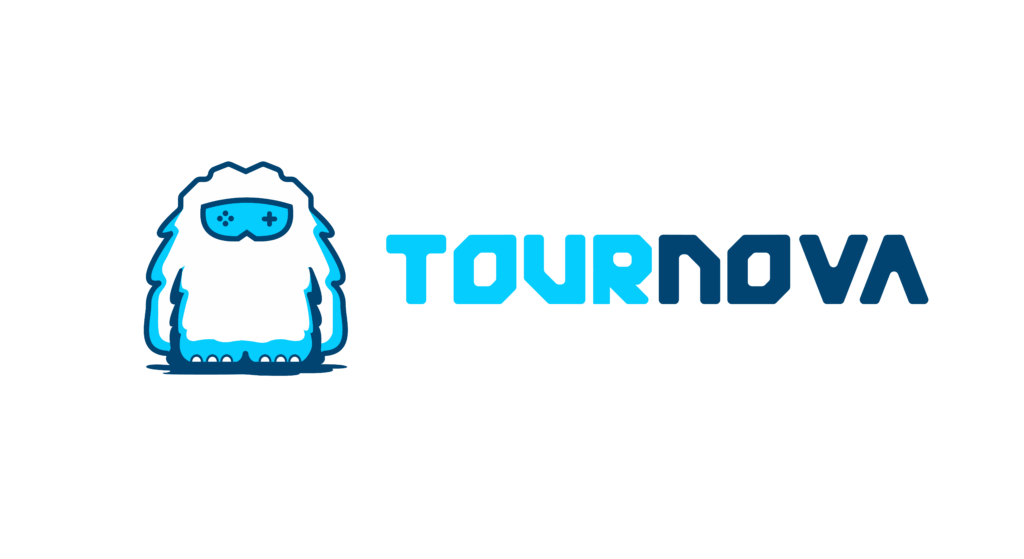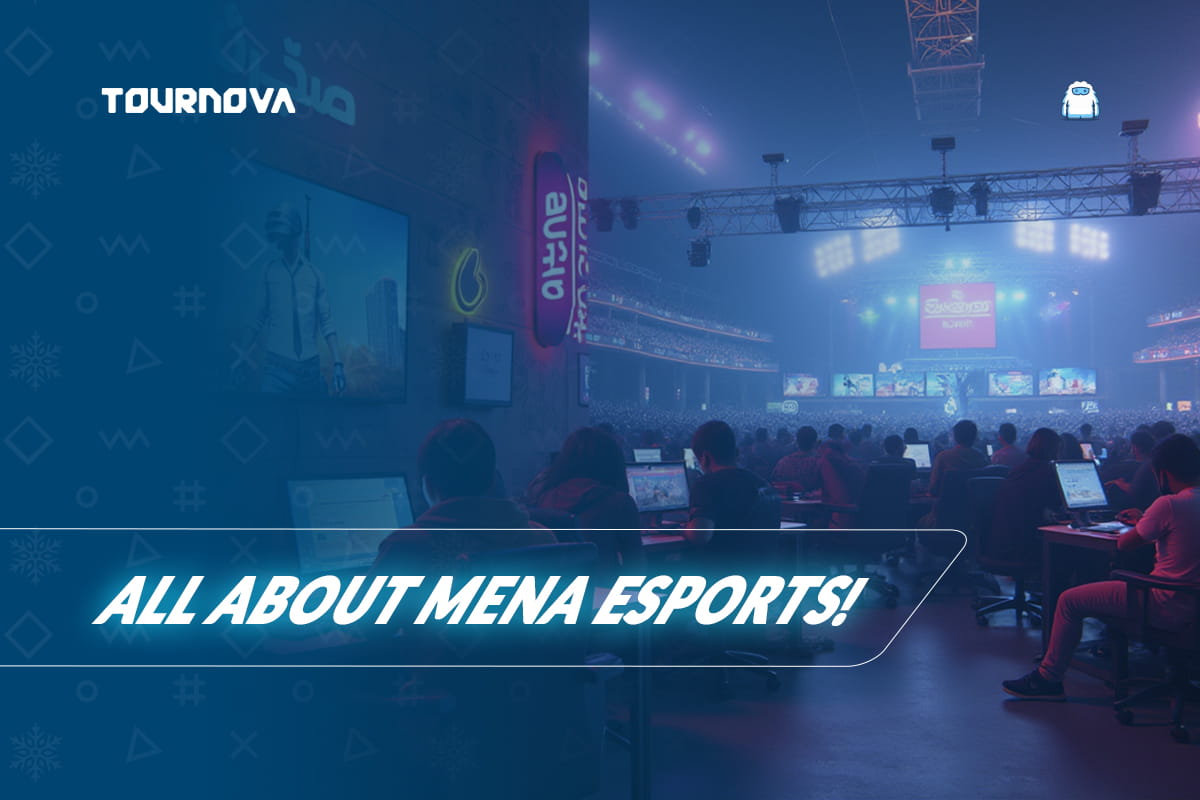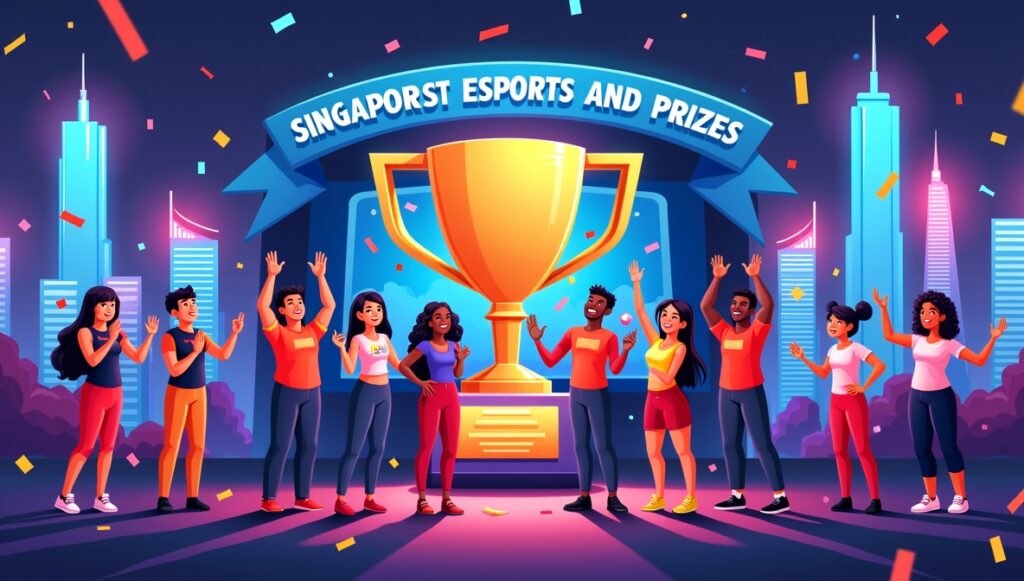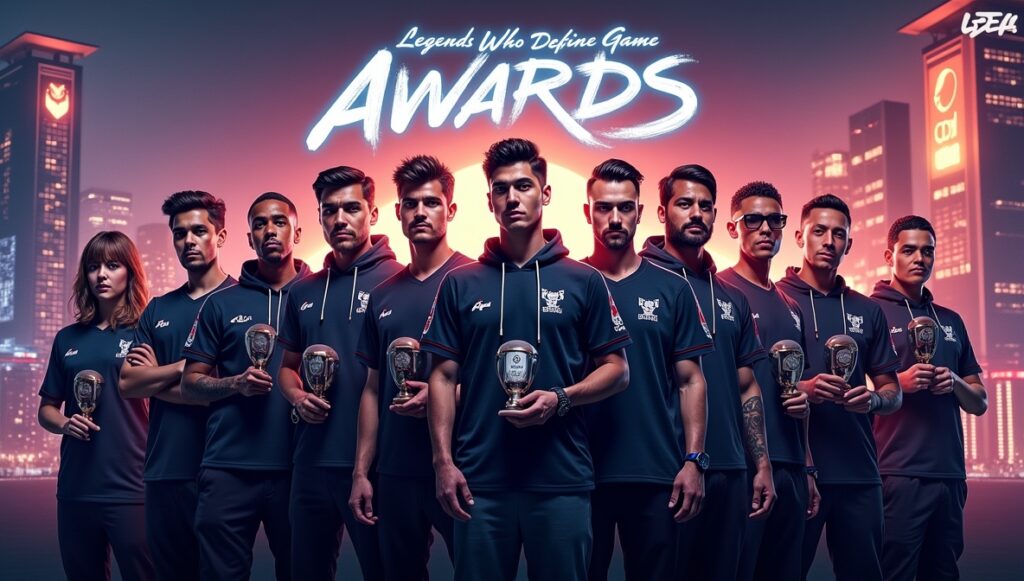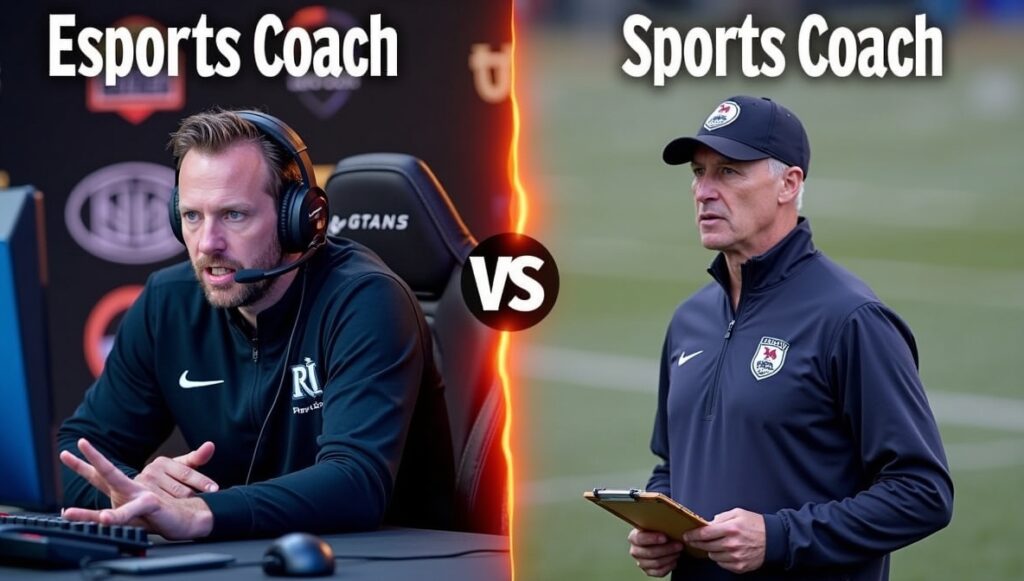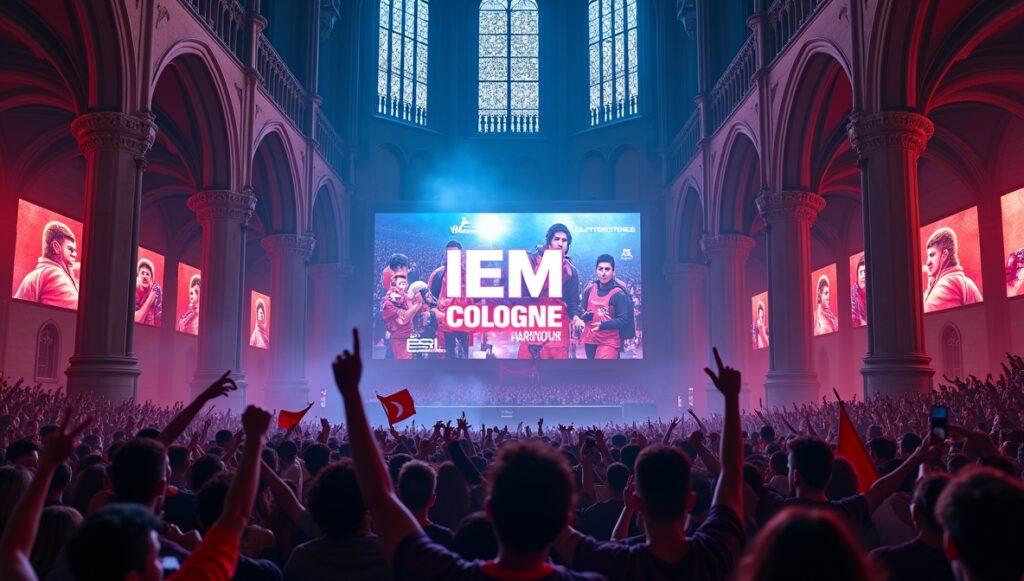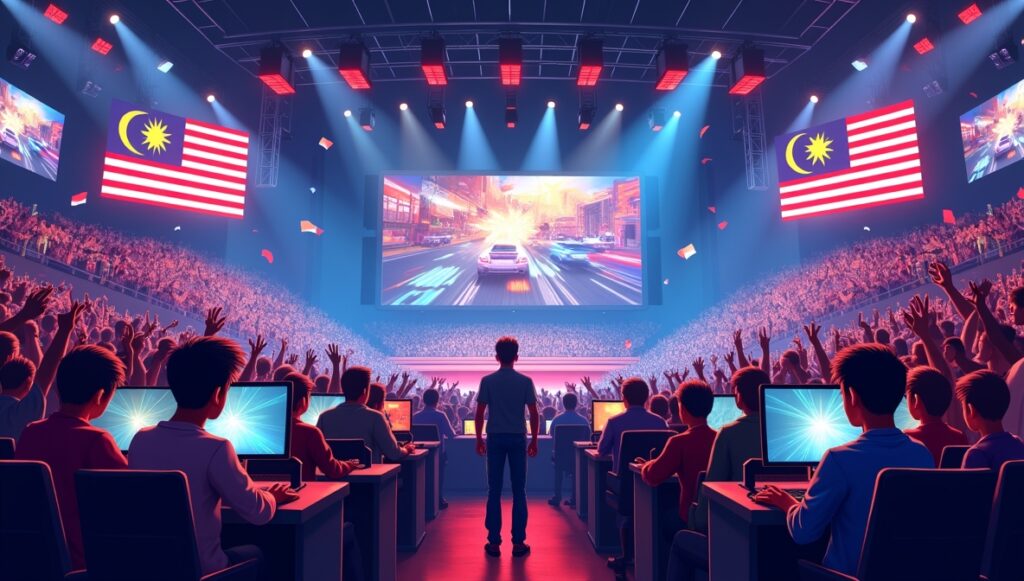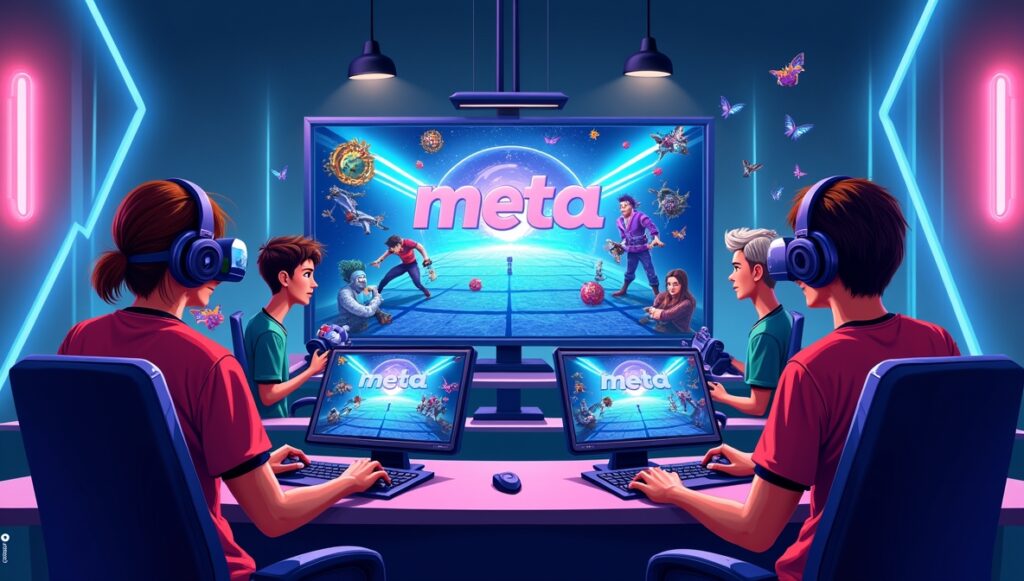From smartphone showdowns in Cairo to million-dollar finals in Dubai, the MENA esports scene is rewriting the rules of competitive gaming. Dive into the ultimate hub for tournaments, teams, trends, and the future of gaming in the Middle East and North Africa.
The global esports industry is evolving at breakneck speed, but few regions have seen a transformation as dramatic and fast-paced as the Middle East and North Africa (MENA). Once considered a peripheral player in the global gaming arena, MENA is now front and center, capturing international attention with its explosive growth, cutting-edge events, and rising stars. Governments, tech giants, and gaming enthusiasts alike are investing heavily in the region—turning esports into a cultural movement, a viable career path, and a multi-billion-dollar industry.
From the neon-lit streets of Dubai to the bustling cafés of Cairo, gaming is no longer just a hobby—it’s a lifestyle. Whether it’s fans cheering in sold-out stadiums, players battling in online tournaments from their mobile phones, or creators streaming to thousands on YouTube and Twitch, MENA is proving it belongs on the world esports stage. But what’s fueling this growth? The answers lie in a mix of tech adoption, youthful demographics, strategic government support, and a deep cultural appetite for competition and digital connection.
This hub article brings together all the essential elements that define the MENA esports ecosystem—from mobile dominance and regional tournaments to sponsorships, influencers, and the growing role of women in gaming. Whether you’re an esports fan, player, developer, or curious observer, this is your one-stop guide to understanding the forces shaping MENA’s ascent as a gaming powerhouse. Get ready to dive into the vibrant, fast-moving world of esports in the Middle East and North Africa—a region that’s not just catching up, but leading the charge.
The Rise of Esports in the Middle East and Its Bright Future

The transformation from a solitary pastime to a mainstream cultural and economic force has been nothing short of remarkable in MENA. Esports has moved beyond cafés and bedrooms into massive arenas and streaming platforms that capture the imagination of millions.
Read More – The Rise of Esports in the Middle East and Its Bright Future
The Power of Phones: Mobile Gaming in MENA Takes Over
Mobile gaming is revolutionizing the esports scene across the Middle East and North Africa (MENA), transforming how competition happens and who gets to play. Gone are the days when esports battles were confined to large LAN centers—today, millions clutch smartphones everywhere from bustling cafés to city streets, turning everyday moments into high-stakes tournaments. Affordable devices and faster mobile internet have made gaming accessible to a rapidly growing, youthful population hungry for connection and competition.
Titles like PUBG Mobile, Free Fire, and Mobile Legends: Bang Bang dominate the MENA esports landscape, with passionate teams and massive fanbases elevating the region’s profile on the global stage. Events like the Red Bull Mobile Esports Open and PUBG Mobile Pro League have brought professional-level tournaments to the forefront, drawing thousands of viewers and inspiring the next generation of players.
Looking ahead, the rise of 5G technology, cloud gaming, and emerging blockchain innovations promise to deepen mobile esports’ impact.
Mobile gaming is no longer just a pastime in MENA — it’s the heartbeat of a booming esports ecosystem, creating opportunities, fueling dreams, and connecting players like never before. This mobile revolution is putting MENA firmly on the global esports map.
MENA Gaming Esports Tournaments: The Region’s Biggest Events
The Middle East and North Africa (MENA) region has quickly become a powerhouse in the global esports arena, with MENA Gaming Esports Tournaments leading the charge. What started as small local competitions has exploded into grand-scale events attracting millions of viewers and multi-million-dollar prize pools. This surge is fueled by visionary government initiatives, cutting-edge infrastructure, and a passionate, youthful gaming community eager to compete and connect.
Here’s a snapshot of some of the region’s biggest and most influential esports tournaments:
| Tournament/Event | Location | Featured Games | Prize Pool & Highlights |
| Gamers8 | Riyadh, Saudi Arabia | Fortnite, Dota 2, CS2, PUBG Mobile, FIFA | $45M+ total prize pool, multi-week festival with entertainment |
| GIRLGAMER Esports Festival | Dubai, UAE | Valorant, League of Legends, CS2 | Women-focused, promoting inclusivity and diversity |
| Insomnia Egypt | Cairo, Egypt | FIFA, PUBG, League of Legends, Fortnite | Community-driven with cosplay and amateur tournaments |
| Red Bull M.E.O. | Various (MENA-wide) | Clash Royale, PUBG Mobile, Hearthstone | Regional qualifiers leading to global finals |
| OMEN Challenger Series | Dubai, UAE | CS2, Valorant | Showcases top regional talent with international qualifiers |
These tournaments are not just competitions—they are cultural phenomena that unite gamers and fans, inspire new talent, and propel MENA into the global esports spotlight. With continuous growth, increasing sponsorship, and a vibrant community, the future of esports tournaments in MENA looks brighter than ever.
Best MENA Gaming Esports Teams: Region’s Rising Stars
The Middle East and North Africa is no longer an emerging region in esports—it’s a rising powerhouse. With national support, investment, and raw gaming talent, the Best MENA Gaming Esports Teams are making global headlines and shaking up leaderboards across major tournaments.
These teams aren’t just winning games—they’re building legacies, inspiring young players, and turning the MENA region into a recognized epicenter of competitive gaming.
Top MENA Teams Dominating the Scene:
- Team Falcons (Saudi Arabia): Known for dominating FIFA, PUBG Mobile, and Fortnite, Falcons made waves by winning at the high-profile Gamers8 Championship. Their disciplined, aggressive play has made them Saudi Arabia’s flagship team.
- Anubis Gaming (Egypt): As Egypt’s pioneering team, Anubis has earned its spot with standout performances in Valorant and League of Legends. Their strategic brilliance makes them one of the most respected orgs in the region.
- NASR Esports (UAE): A true multi-title force, NASR excels in MOBAs, fighting games, and more. From local glory to global arenas, they represent the UAE’s dominance in esports.
- Quest Esports (Iraq): This Dota 2 team has made a name with fearless plays and big upsets. Representing Iraq, they’ve proven that world-class competition can come from anywhere in MENA.
- Sudor Esports (Saudi Arabia): A Valorant-focused squad with growing recognition, Sudor is an emerging team known for smart tactics and explosive gameplay.
What Makes MENA Teams Unique?
- Strong regional identity and community support
- Government and private sector investment
- A youth-driven player base with incredible talent
With challenges being met head-on and the momentum growing, the future looks bright. MENA isn’t just participating—it’s competing to win.
MENA Gaming Esports: The Rising Powerhouse You Need to Know
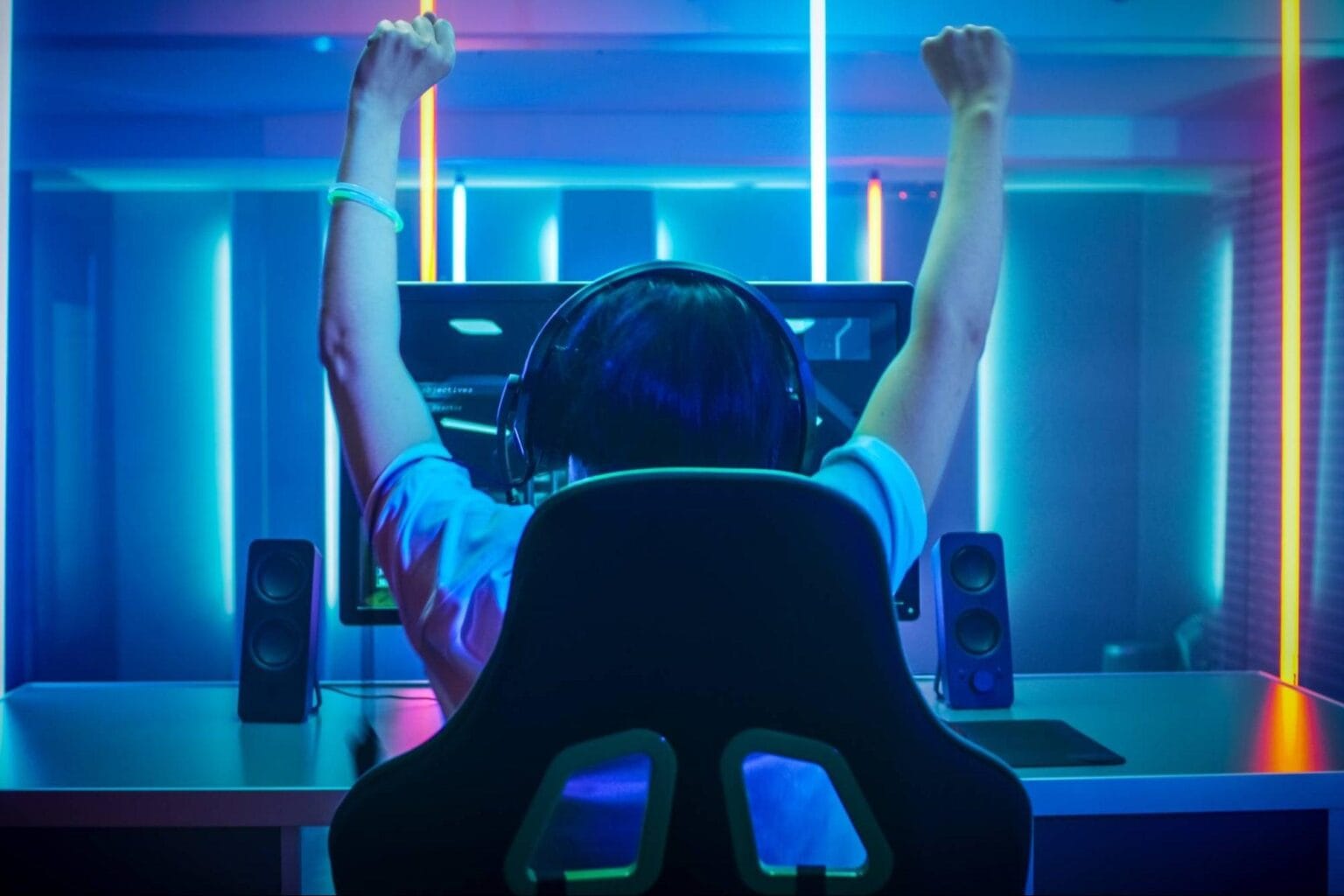
A blend of strong infrastructure, corporate sponsorships, and youth engagement is driving MENA to become a global esports powerhouse. Here’s how the region is catching—and surpassing—the world’s expectations.
Read More – The Rising Powerhouse You Need to Know
The Rise of Online Gaming Tournaments in MENA
The Rise of Online Gaming Tournaments MENA marks a transformative chapter in the region’s digital evolution. Across the Middle East and North Africa, competitive gaming has rapidly moved from cafes and local venues to the virtual arena, with players competing online from their homes, gaming hubs, and even mobile devices. This shift has democratized participation, removed geographical boundaries, and accelerated the growth of esports at an unprecedented pace.
High-speed internet adoption, regional server expansions, and growing support from governments and tech companies have laid the groundwork for a booming online tournament ecosystem. Players now participate in structured, prize-supported competitions across games like PUBG Mobile, FIFA, Valorant, League of Legends, and Fortnite. Events such as the PUBG Mobile Pro League MENA with its sizable prize pools, the Valorant Arabia Cup that scouts new talent, and the FIFA MENA Championship that recreates the intensity of real-world football rivalries have become central to this surge. Even battle royales like Fortnite and MOBAs like League of Legends have embraced the regional shift, spotlighting local talent on global leaderboards.
What makes these online tournaments so impactful is their accessibility and inclusivity. Anyone with a stable connection and dedication can compete, gain recognition, and even represent their country or region on international stages. This new wave of digital-first competitions is not just fostering individual players but also nurturing communities, content creators, and aspiring esports professionals.
As technological infrastructure continues to improve and sponsorships rise, the MENA region is poised to become a global epicenter for online esports. The virtual battlegrounds of today are shaping the champions of tomorrow—connected not by geography, but by passion and pixels.
MENA Gaming Prizes and Rewards Fueling Esports Dreams
The MENA Gaming Prizes and Rewards landscape is rapidly becoming one of the most attractive in the global esports arena. In recent years, prize pools in the Middle East and North Africa have soared, with events like Saudi Arabia’s Gamers8 offering jaw-dropping figures, transforming gaming from a hobby into a high-stakes career opportunity. Whether it’s cash payouts, exclusive sponsorships, or unique in-game content, the rewards offered across MENA tournaments are reshaping the ambitions of gamers throughout the region.
This rise in incentives is not just about headline-grabbing numbers; it reflects a deeper commitment from governments, tech giants, and esports organizations to position MENA as a global esports hub. From the UAE’s competitive FIFA leagues to Egypt’s thriving grassroots tournaments, every corner of the region is seeing players level up—both literally and professionally.
Here’s a snapshot of some of the most notable events and their rewards:
| Tournament/Event | Country | Prize Pool | Key Game Titles |
| Gamers8 | Saudi Arabia | $45 million+ | FIFA, PUBG Mobile, Dota 2 |
| PUBG Mobile Pro League MENA | Multiple | $1 million+ | PUBG Mobile |
| Valorant Arabia League | UAE & GCC | Varies (up to $50K) | Valorant |
| FIFA eWorld Cup Qualifiers | Region-wide | Tens of thousands | FIFA |
| Tournova Platform | Region-wide | Token-based + cash | Multi-title tournaments |
Platforms like Tournova are also innovating how rewards are earned and distributed, making esports more inclusive and rewarding. As prize pools grow and digital infrastructure strengthens, the MENA region stands ready to dominate the global gaming rewards scene—one tournament at a time.
Breaking Boundaries: The New Era of Esports in the Middle East
The MENA esports scene is rewriting the rules, evolving from local matches in internet cafés to global events streamed to millions. This article explores how innovation, culture, and ambition are defining a new era for the region.
Read More – Breaking Boundaries in Middle Eastern Esports
Gaming Culture in MENA: Driving Connection and Entertainment
The Gaming Culture in MENA has transformed into a dynamic force driving entertainment, social interaction, and digital innovation. Once seen as a hobby, gaming in the Middle East and North Africa now pulses at the center of modern life—spanning age groups, cities, and digital platforms. Whether in the lively cafés of Cairo or the high-tech lounges of Dubai, gamers are bonding, competing, and redefining what it means to connect in the digital age.
Fueled by a youth-dominated population—over 60% under the age of 30—the region has embraced gaming as a lifestyle. In fact, MENA’s gaming market hit $15.25 billion in 2024 and is projected to exceed $22 billion by 2029. But the numbers only tell part of the story. From mobile titles like PUBG Mobile and Free Fire to esports stages showcasing Valorant and FIFA, the diversity and reach of gaming in MENA continue to grow.
Mobile gaming reigns supreme thanks to affordable smartphones and improved connectivity, while console and PC gaming thrive through esports tournaments and gaming cafes. Platforms like Twitch, YouTube, and TikTok are also helping local gamers build massive followings and share their passion globally.
Cultural identity plays a huge role, too. Games featuring Arabic localization or narratives rooted in regional history—like Assassin’s Creed Origins—resonate deeply with MENA players, offering more than fun: they offer representation.
Despite challenges like infrastructure gaps or regulatory hurdles, the gaming community’s resilience is clear. With innovation, investment, and a passionate player base, MENA isn’t just keeping up—it’s leading the way.
At its core, gaming in MENA is about more than competition. It’s a celebration of community, creativity, and culture—making it one of the most exciting regions in the global gaming landscape.
Red Bull x Tetris: Global Esports Final Set in Dubai
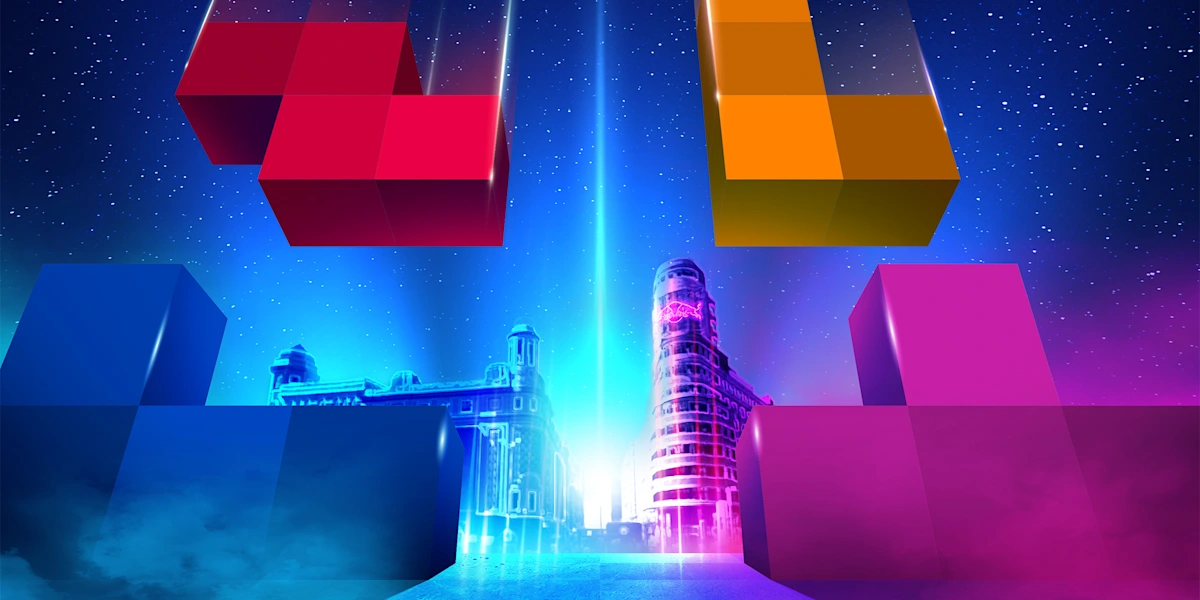
In a groundbreaking move, Red Bull and Tetris are bringing a world-first global tournament to the Dubai Frame. The innovative event will blend nostalgia with modern competition in a one-of-a-kind esports spectacle.
MENA Esports Sponsorship: Fueling the Future
In recent years, esports in the Middle East and North Africa has evolved from underground LAN parties into packed arenas, televised tournaments, and full-time careers. At the heart of this transformation is a surge in MENA Esports Sponsorship, connecting passionate communities with forward-thinking brands eager to ride the wave of digital competition.
Here’s how sponsorships are fueling the ecosystem:
- Rapid Market Growth: With over 50% of MENA’s population under 25 and a growing appetite for competitive gaming, sponsors have found an ideal audience—young, engaged, and always online.
- Brand Diversity: From energy drinks to telecom giants, non-endemic brands like KFC and STC are making strategic plays, sponsoring teams, events, and even player-centric campaigns that feel deeply local yet globally relevant.
- Creative Activations: Red Bull’s Campus Clutch and Anubis Gaming’s KFC collab show how brands can move beyond logos, creating content, merchandise, and in-game experiences that fans actually love.
- Infrastructure Support: Sponsorship now includes tech, venues, and platforms—giving players better conditions to train, compete, and stream. The result? More polished events and career opportunities.
- Grassroots to Global: From local university leagues to mega-events like Gamers8 with $45M prize pools, sponsorship has scaled esports across every level.
This is just the beginning. The region’s esports scene is still growing—and for brands, creators, and fans alike, the next chapter promises even more wins.
Regional Tournaments in MENA: Uniting Talent Across Borders
MENA’s regional events serve as talent incubators, giving players a stage to shine beyond their home countries. These competitions are building strong communities and setting the groundwork for international stardom.
MENA Gaming and Esports Industry Statistics
The Middle East and North Africa (MENA) is quickly becoming a force to be reckoned with in the global gaming and esports landscape. What was once considered a fringe pastime in internet cafés or living rooms has transformed into a thriving ecosystem of competitive gamers, innovative startups, and massive fanbases. Today, cities like Riyadh, Cairo, and Dubai are lighting up not just with neon screens, but with real opportunity—and the data proves it.
According to recent MENA gaming and Esports industry statistics, the region is home to an estimated 377 million gamers, accounting for nearly half its total population. It’s not just the numbers that are impressive—it’s the energy behind them. From neighborhood FIFA tournaments to multimillion-dollar esports events like Gamers8, gaming is now deeply embedded in the cultural and economic fabric of MENA.
So, what’s fueling this boom? Youth, for one. With over 60% of the population under 30, the region’s digital natives are building communities, driving viewership, and even choosing gaming as a career path. Government investments are another powerful driver. Initiatives like Saudi Arabia’s Vision 2030 are injecting billions into game development, esports infrastructure, and education.
Meanwhile, mobile gaming has taken off thanks to improved internet speeds and 5G networks, allowing gamers from all walks of life to compete globally. The industry is forecasted to hit $57.4 million in esports revenue by 2025, and that’s just the beginning.
From challenges in rural connectivity to the high cost of gaming hardware, the journey isn’t without hurdles. But with ongoing investments and community passion, MENA is uniquely positioned not just to play the game—but to lead it.
MENA Gaming Market Growth: Leveling Up the Region
Driven by youthful demographics, government investments, and massive consumer demand, MENA’s gaming market is one of the fastest-growing in the world. Discover the trends behind its unstoppable momentum here.
Women Gamers in MENA: A Rising Force
The MENA region is undergoing a gaming revolution—and at its heart is a powerful, rising force: women gamers in MENA. No longer confined to the sidelines, women across the Middle East and North Africa are stepping into the spotlight as players, creators, streamers, and esports athletes. Whether competing in local Valorant tournaments or dominating Candy Crush leaderboards, their presence is changing the game—and the culture around it.
In Saudi Arabia alone, up to 48% of gamers are women, signaling not just interest, but influence. This surge is driven by multiple factors: greater internet access, the rise of mobile gaming, and cultural shifts supported by national initiatives like Vision 2030. Mobile titles like Ludo King and puzzle games offer an accessible entry point, but many women are now turning to multiplayer and competitive formats, proving their skills in the region’s fastest-growing sector.
At the same time, challenges remain. Online harassment, lack of visibility in esports leagues, and persistent stereotypes create barriers that can limit participation. But the tide is turning. Platforms like Miss Esports are providing safe spaces, mentorship, and visibility for female talent, while regional tournaments and women-led teams are beginning to emerge across the UAE, Egypt, and beyond.
The benefits of inclusion are profound. A diverse gaming ecosystem doesn’t just reflect the real world—it creates new opportunities for innovation, community-building, and global recognition. Women gamers are vital to this evolution, shaping new narratives and proving that the MENA gaming scene isn’t just growing—it’s evolving into one of the most dynamic and inclusive regions worldwide.
MENA Competitive Gaming Events Listed

The Middle East and North Africa (MENA) region is rapidly becoming a global hotspot for esports, fueled by vibrant communities, government support, and major events drawing worldwide attention. If you’re curious about where competitive gaming in MENA stands today and what’s coming next, our MENA competitive gaming events list offers a snapshot of this exciting ecosystem.
Here are some key highlights of MENA’s esports scene:
- Gamers8 (Saudi Arabia): The world’s largest gaming festival held annually in Riyadh, boasting over $45 million in prize money across titles like PUBG, Dota 2, and FIFA. Beyond competition, it features live concerts, expos, and immersive fan experiences.
- PUBG Global Championship MENA League: Showcases top-tier regional PUBG teams battling for dominance in venues across the UAE and Saudi Arabia, bringing high-octane gameplay to passionate audiences.
- Dubai Comic Con: More than just cosplay and pop culture, it integrates gaming tournaments focused on Valorant, Fortnite, and indie games, spotlighting emerging regional talent.
Popular games dominating MENA’s competitive events include FIFA, reflecting the region’s love for football, Valorant with its strategic depth, and Fortnite’s fast-paced battle royale action.
The impact of these events goes beyond entertainment. They foster cross-border communities, create jobs, boost tourism, and position MENA as a rising esports powerhouse. While challenges such as internet stability, equipment costs, and regulatory complexities remain, ongoing investments and partnerships are steadily turning these into growth opportunities.
Looking ahead, the esports calendar is packed with promising events, such as Gamers8 2025, Valorant Masters MENA, and the Fortnite Arabia Championship—each pushing the boundaries for players, fans, and brands alike.
MENA’s competitive gaming scene is more than tournaments; it’s a connected future of gaming culture and innovation, unfolding right before our eyes.
MENA Gaming Influencers: Leading the Digital Playground
Gaming influencers in the Middle East and North Africa (MENA) are transforming the region’s digital playground. These content creators don’t just play games—they build communities, set trends, and lead the gaming culture forward. With millions of followers, MENA gaming influencers connect players, share expert tips, and showcase the latest games, making them essential figures in the region’s esports and gaming ecosystem.
Below is a snapshot of some of the top MENA gaming influencers shaping the scene:
| Influencer | Country | Specialty | Subscribers / Followers | Notable Contributions |
| BanderitaX | Saudi Arabia | Variety gaming (Fortnite, Minecraft, Fall Guys) | 19M+ subscribers | Engaging streams, diverse game content |
| D7oomy999 | Saudi Arabia | Mobile gaming (PEA Sports FC, challenges) | Millions | Interactive mobile gameplay and collaborations |
| Ahmed Show | Saudi Arabia | FIFA, esports analysis, vlogs | 5.4M+ subscribers | “No Money” FIFA series, storytelling content |
MENA gaming influencers have a powerful impact on their communities, organizing tournaments, hosting meetups, and fostering a sense of belonging beyond online play. They also shape gaming trends, often determining which titles gain popularity through their streams and reviews. Localization efforts have made Arabic-language content increasingly important, helping influencers better engage their audiences by respecting cultural relevance.
In esports, influencers boost competitive gaming’s visibility by casting tournaments, interviewing players, and creating hype around events. Despite challenges like censorship and monetization limits, growing youth audiences and rising brand partnerships offer immense opportunities.
For aspiring influencers, authenticity, cultural sensitivity, and consistent engagement remain key to success. The future looks bright as MENA gaming influencers continue to build vibrant, inclusive communities and elevate the region’s presence on the global gaming stage.
The Future of Gaming in MENA
As 5G, VR, blockchain, and local development studios reshape gaming, MENA is positioned for an even more explosive future. Learn what’s next in infrastructure, innovation, and regional ambition in this article.
MENA Gaming Trends: Exploring the Next Big Moves
The Middle East and North Africa (MENA) region is experiencing a gaming revolution that’s transforming how people connect, compete, and create. From the lively streets of Cairo to family game nights in Riyadh, gaming is becoming a core part of daily life. The rise of MENA gaming trends highlights a booming scene fueled by passion, technology, and cultural identity.
Key highlights shaping the future of gaming in MENA include:
- Massive Gamer Population: With over 377 million gamers, MENA rivals some of the largest gaming markets worldwide. Most players are aged between 18 and 34, representing a vibrant, young community driving growth.
- Mobile Gaming Dominance: Thanks to widespread smartphone use and affordable data plans, mobile games like PUBG Mobile, Free Fire, and Clash of Clans reign supreme. These games offer accessible, fast-paced fun that fits seamlessly into daily routines.
- Console Gaming Community: Console titles such as FIFA, Call of Duty, and Fortnite remain popular, especially for their social aspect—bringing friends and families together for shared gaming experiences.
- Localized and Cultural Content: An exciting trend is the emergence of games inspired by regional stories, folklore, and Arabic-language adaptations. This growing focus on cultural relevance is helping players feel more connected to their gaming worlds.
- Challenges and Innovations: While connectivity and censorship pose hurdles, cloud gaming services and region-specific game adaptations are helping overcome these barriers.
- Government and Industry Support: Initiatives like Saudi Arabia’s Vision 2030 are driving investments in gaming and esports infrastructure, positioning MENA as a future global hub.
In short, gaming in MENA isn’t just entertainment—it’s a cultural movement uniting communities and opening new horizons. The blend of tradition, technology, and youthful energy makes the region’s gaming future truly bright.
Can Saudi Arabia Turn Riyadh into the Global Hub of Esports?
Esports has rapidly evolved into a multibillion-dollar global industry, and Saudi Arabia is emerging as a major player in this space. With strong government backing through its Vision 2030 initiative, the Kingdom is investing billions to transform Riyadh into the world’s esports capital. Central to this ambition is the Esports World Cup (EWC), held annually in Riyadh, boasting record-breaking prize pools and massive global viewership.
Saudi Arabia’s strategy includes massive investments in gaming infrastructure, digital networks, and talent development programs. The Saudi Esports Federation organizes local leagues and supports teams like Team Falcons, which compete internationally in games like Valorant and Dota 2. Beyond tournaments, Riyadh is building state-of-the-art venues and boosting internet infrastructure to support competitive gaming at the highest level.
Localization and cultural relevance are also key, with Saudi Arabia pushing for games that reflect Arab culture, helping foster a stronger connection with local players. Additionally, investments in artificial intelligence aim to innovate gaming experiences and esports operations.
With partnerships spanning global brands and the upcoming hosting of the Olympic Esports Games in 2027, Riyadh is well-positioned to become a global esports powerhouse. The question is no longer if, but when.
Final Thoughts: MENA Is Ready for the Global Stage
5The MENA gaming industry is one of the fastest-growing markets globally, driven by a young population
What was once seen as a niche scene is now a cornerstone of global esports and gaming culture. With strong governmental support, a passionate youth demographic, and a culture of innovation, MENA is no longer playing catch-up—it’s taking the lead.
Whether you’re a developer looking to expand, a brand considering sponsorship, or a gamer curious about the next big region—keep your eyes on MENA.
Read about everything eSports all over the world via our Global Esports features on Tournova.
MENA Esports FAQs
How can international players or teams participate in MENA esports tournaments?
Many MENA esports events welcome international participation through open qualifiers or special invitation slots. Larger events like Gamers8 or Blast Premier Middle East often include global qualifiers or allow direct applications from top-ranked teams. International players should keep an eye on tournament websites and social channels for registration dates, visa support details, and remote participation options. It’s also helpful to connect with local esports orgs who may be seeking international talent or scrims.
Are there esports scholarships or academic programs in MENA?
Yes—esports is gaining traction in the academic world across MENA. Some universities in countries like Saudi Arabia and the UAE have begun offering esports-related degrees, game design courses, and even competitive esports scholarships. These programs blend education with gaming, preparing students for careers in game development, broadcasting, and competitive play. Look out for initiatives by institutions such as Prince Sultan University or local branches of global universities.
What are the main challenges facing esports development in MENA?
While the region is rapidly growing, key challenges still exist. These include limited local game development, gaps in infrastructure outside of major cities, inconsistent internet quality in some areas, and cultural perceptions of gaming as “just a pastime.” Additionally, talent retention can be a hurdle, as many players seek international exposure due to limited local professional leagues. However, ongoing investments and policy changes are helping to steadily overcome these barriers.
